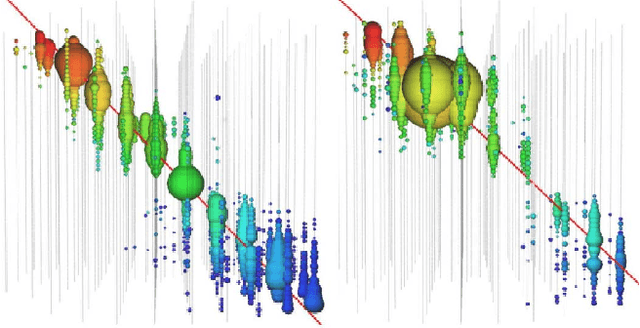Graph Neural Networks for IceCube Signal Classification
Paper and Code
Sep 17, 2018



Tasks involving the analysis of geometric (graph- and manifold-structured) data have recently gained prominence in the machine learning community, giving birth to a rapidly developing field of geometric deep learning. In this work, we leverage graph neural networks to improve signal detection in the IceCube neutrino observatory. The IceCube detector array is modeled as a graph, where vertices are sensors and edges are a learned function of the sensors' spatial coordinates. As only a subset of IceCube's sensors is active during a given observation, we note the adaptive nature of our GNN, wherein computation is restricted to the input signal support. We demonstrate the effectiveness of our GNN architecture on a task classifying IceCube events, where it outperforms both a traditional physics-based method as well as classical 3D convolution neural networks.
 Add to Chrome
Add to Chrome Add to Firefox
Add to Firefox Add to Edge
Add to Edge